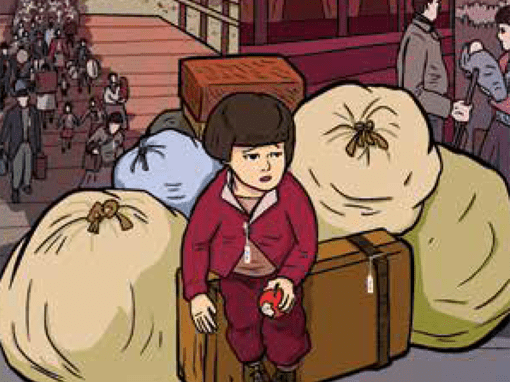You may not know the name Minoru Yasui, but he was a hero for Japanese Americans during World War II and paved the way after the war to make Denver a more welcoming place for minorities and immigrants.
Minoru Yasui, or Min, was born in Hood River, Oregon and became the first Japanese American to receive a degree from the University of Oregon School of Law in 1939. Unfortunately, law firms wouldn’t hire him because of his ethnic heritage. When Pearl Harbor was attacked on December 7, 1941, he reported for duty with the Army Reserves, which he had enlisted in after he graduated. But he was turned away from serving, again because of his Japanese ancestry.
He went to work helping Japanese immigrants and their U.S.-born children, who were American citizens by birth. But when the military gave an order that imposed travel restrictions and a curfew that applied to German and Italian alien citizens and all persons of Japanese ancestry, including U.S. citizens, Min knew that was wrong. Min recognized this order as unlawful discrimination based on race and ancestry, and a violation of the U.S. Constitution. So he went to work fighting the order.
He made himself a legal test case, and walked around downtown Portland after curfew, trying to get arrested. When cops on the street wouldn’t arrest him and just told him to “go home,” he went to the police station and demanded to be arrested.
So he was!
His legal journey was just starting. He spent nine months in solitary confinement at one point, and wasn’t allowed to even take a shower for part of the time. His legal battles took him all the way to the Supreme Court… and he lost his case. The Supreme Court ruled back then that the military curfew was justified as a “wartime necessity.” He was sent to a Japanese American concentration camp in Minidoka, Idaho, and spent most of the rest of the war there along with more than 9,000 Japanese immigrants and Japanese Americans including entire families.
After the war, he settled in Denver to establish a law practice that helped people who were traditionally underrepresented. But, because of his wartime conviction for breaking the curfew, he was denied a law license to practice in Colorado!
He fought for the right to practice law to the Colorado Supreme Court and won, and he was accepted into the state bar. Along with his practice, which included helping Japanese Americans apply for money from the government for what they lost when they were incarcerated (they only got a fraction of the amount they lost), Min was a supporter of Denver’s minority communities. He was a founder of the Denver chapter of the Urban League which served African Americans, and later was involved in Latino and American Indian organizations.
He was appointed to Denver’s Commission on Community Relations in 1959 and served for eight years on the commission as a member, and became vice-chairman and chairman of the commission. In 1967 he was appointed the commission’s Executive Director, and held the position until his retirement in 1983. During his tenure as Executive Director, he started various agencies that, to this day, help Denver citizens as commissions under Denver’s Agency on Human Rights and Community Partnerships, including the Commissions on Youth, Aging, Human Services, the Council on Disabled and the Office of Citizen Response.
As director of Commission on Community Relations, Min started a monthly award to recognize people who volunteer for worthy causes. In 1976, the award was renamed the Minoru Yasui Community Volunteer Award (MYCVA), in recognition of Min’s tireless spirit of volunteerism. The award is given to this day.
Throughout the 1970s and ‘80s, Min was active in the movement to push the U.S. government for redress for the injustice of wartime incarceration of Japanese immigrants and Japanese Americans. In 1983, he also began a new case to overturn his curfew conviction from 1942. He and his attorney filed the case in Oregon and a District Court judge did overturn his curfew guilty verdict, but didn’t dismiss his other claims which included charges of governmental misconduct. The decision was appealed to the Ninth Circuit Court. But sadly, Min died in 1986, and the court dismissed his appeal. A further appeal to the Supreme Court was also dismissed. But his inspiring legacy of social justice and never giving up lives on to this day, as an example to others.
Minoru Yasui was most well-known for his courageous stand against military orders that resulted in the forced removal and imprisonment of over 110,000 persons of Japanese ancestry during World War II, but his entire life was committed to the defense of human and civil rights, and justice for all.
Pop Culture Classroom
9am-5pm Monday-Friday
Quick Links
Comics 101
For Educators
For Parents
For Students


